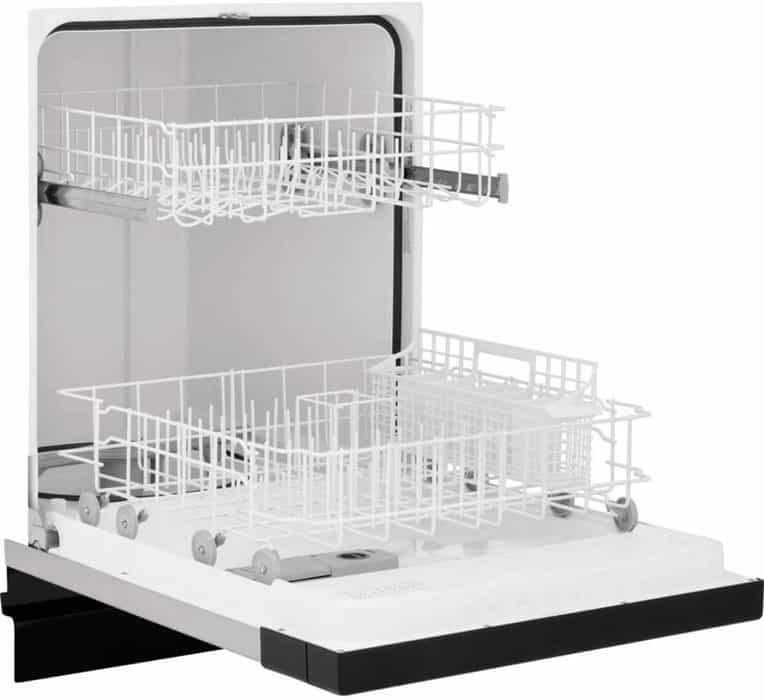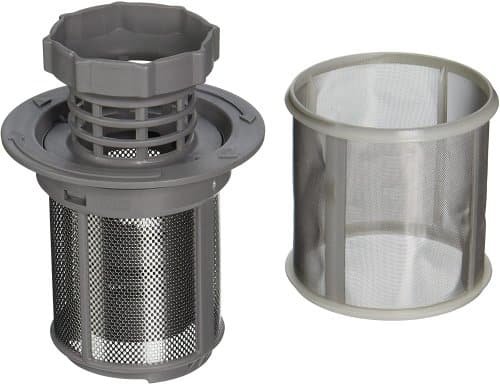A musty-smelling dishwasher can be a major inconvenience in any household. Not only does it affect the cleanliness of your dishes, but it can also indicate underlying issues that need immediate attention. In this comprehensive guide, we will explore the causes of a musty dishwasher and provide detailed solutions to eliminate the unpleasant odor.
Table of Contents
Dishwasher Smells Musty: Causes and Solutions
A musty smell coming from your dishwasher can be quite unpleasant, but there are a few steps you can take to eliminate it. First, check the filter and drain at the bottom of the dishwasher for any food particles or debris that may be causing the odor. Cleaning these areas regularly can help prevent musty smells from developing.
Next, run a cycle with a cup of white vinegar in an empty dishwasher to help remove any lingering odors. You can also sprinkle baking soda on the bottom of the dishwasher and run a short cycle to freshen it up. Additionally, make sure to leave the door of the dishwasher open after each use to allow it to air out and prevent moisture buildup that can lead to musty smells. Following these tips should help keep your dishwasher smelling fresh and clean.

Understanding the Causes of a Musty Dishwasher
1. Accumulation of Food Particles
One of the primary reasons for a musty smell in your dishwasher is the accumulation of food particles. These particles can get trapped in various parts of the dishwasher, such as the filter, spray arms, and seals, leading to bacterial growth and a subsequent foul odor.
2. Standing Water
Water that doesn’t drain properly from the dishwasher can become stagnant and create a breeding ground for mold and mildew. This standing water often collects in the bottom of the dishwasher and the drain, contributing to the musty smell.
3. Mold and Mildew Growth
Dishwashers, due to their warm and moist environment, are prone to mold and mildew growth. Mold can develop in hidden areas like the door gasket, spray arms, and even in the interior surfaces of the dishwasher, causing a persistent musty odor.
4. Dirty Filter
A dirty filter is another common culprit. The filter traps food particles and debris, preventing them from recirculating onto your dishes. If not cleaned regularly, the trapped particles can decompose, causing a bad smell.

5. Hard Water Deposits
Hard water can leave mineral deposits inside the dishwasher, particularly on the heating element. These deposits can harbor bacteria and contribute to a musty odor over time.
Effective Solutions to Eliminate Musty Odor
1. Regular Cleaning and Maintenance
Cleaning your dishwasher regularly is the most effective way to prevent musty smells. Here are some steps to follow:
- Clean the filter: Remove the filter and wash it under running water. Use a soft brush to remove stubborn particles.
- Wipe down the interior: Use a damp cloth to clean the interior surfaces, paying special attention to the door gasket and spray arms.
- Run a cleaning cycle: Use a dishwasher cleaner or a mixture of vinegar and baking soda to run a cleaning cycle once a month.
2. Ensure Proper Drainage
Check the dishwasher drain and ensure it is not clogged. A clogged drain can lead to standing water, which contributes to mold growth and unpleasant odors. If you notice any blockages, clear them promptly to maintain proper drainage.
3. Use High-Temperature Wash Cycles
High-temperature wash cycles can help kill bacteria and reduce mold and mildew growth. Opt for the hottest setting available on your dishwasher to ensure thorough cleaning and sanitation.
4. Inspect and Clean the Spray Arms
The spray arms play a crucial role in distributing water throughout the dishwasher. If they are clogged with food particles or mineral deposits, they won’t function effectively. Remove the spray arms and clean them with a brush to ensure they are free of debris.

5. Address Hard Water Issues
If you have hard water, consider installing a water softener. This will reduce mineral buildup in your dishwasher and improve its overall performance. Additionally, using a dishwasher detergent designed for hard water can help prevent deposits.
Preventive Measures to Keep Your Dishwasher Fresh
1. Run the Dishwasher Regularly
Running the dishwasher regularly prevents water from sitting stagnant for long periods, reducing the likelihood of mold and mildew growth. Even if you don’t have a full load, it’s beneficial to run a rinse cycle to keep the interior fresh.
2. Leave the Door Ajar
After each wash cycle, leave the dishwasher door slightly ajar. This allows air to circulate and helps dry out the interior, preventing the growth of mold and mildew.
3. Use Dishwasher Deodorizers
There are various dishwasher deodorizers available in the market that can help keep your dishwasher smelling fresh. These products are designed to neutralize odors and provide a pleasant scent.
4. Check and Replace Seals
Over time, the seals around the dishwasher door can wear out, leading to gaps where moisture can escape and mold can grow. Inspect the seals regularly and replace them if necessary to ensure a tight fit.
5. Avoid Overloading
Overloading the dishwasher can obstruct water flow and prevent proper cleaning. Ensure there is enough space between dishes for water and detergent to circulate effectively. This not only improves cleaning performance but also helps prevent musty odors.
Conclusion
A musty-smelling dishwasher is a common issue that can be effectively managed with regular maintenance and proper cleaning practices. By understanding the causes and implementing the solutions provided, you can ensure your dishwasher remains fresh and efficient. Remember to incorporate preventive measures to avoid future problems and enjoy the convenience of a clean and odor-free dishwasher.
